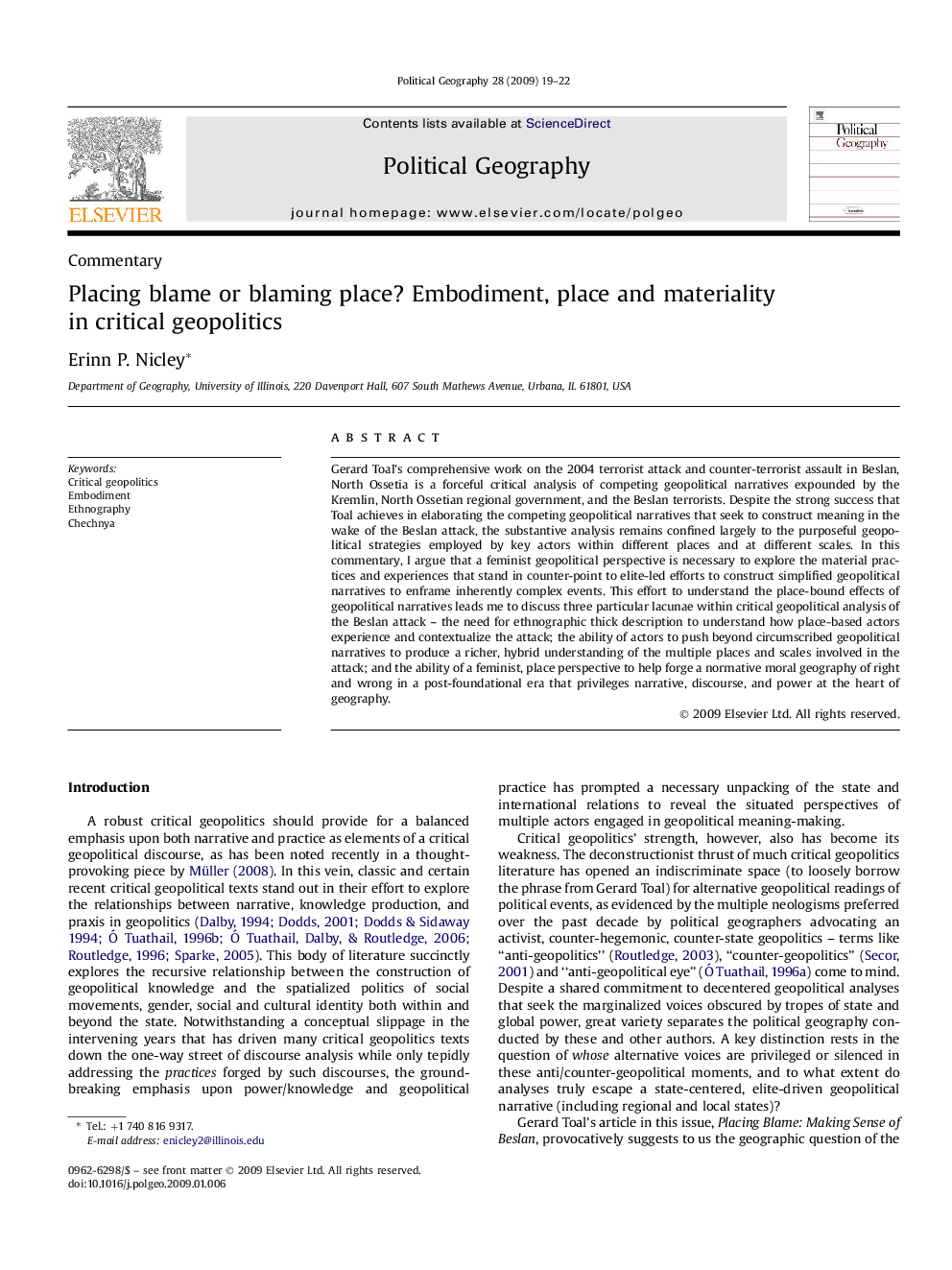| Article ID | Journal | Published Year | Pages | File Type |
|---|---|---|---|---|
| 1062352 | Political Geography | 2009 | 4 Pages |
Gerard Toal's comprehensive work on the 2004 terrorist attack and counter-terrorist assault in Beslan, North Ossetia is a forceful critical analysis of competing geopolitical narratives expounded by the Kremlin, North Ossetian regional government, and the Beslan terrorists. Despite the strong success that Toal achieves in elaborating the competing geopolitical narratives that seek to construct meaning in the wake of the Beslan attack, the substantive analysis remains confined largely to the purposeful geopolitical strategies employed by key actors within different places and at different scales. In this commentary, I argue that a feminist geopolitical perspective is necessary to explore the material practices and experiences that stand in counter-point to elite-led efforts to construct simplified geopolitical narratives to enframe inherently complex events. This effort to understand the place-bound effects of geopolitical narratives leads me to discuss three particular lacunae within critical geopolitical analysis of the Beslan attack – the need for ethnographic thick description to understand how place-based actors experience and contextualize the attack; the ability of actors to push beyond circumscribed geopolitical narratives to produce a richer, hybrid understanding of the multiple places and scales involved in the attack; and the ability of a feminist, place perspective to help forge a normative moral geography of right and wrong in a post-foundational era that privileges narrative, discourse, and power at the heart of geography.
